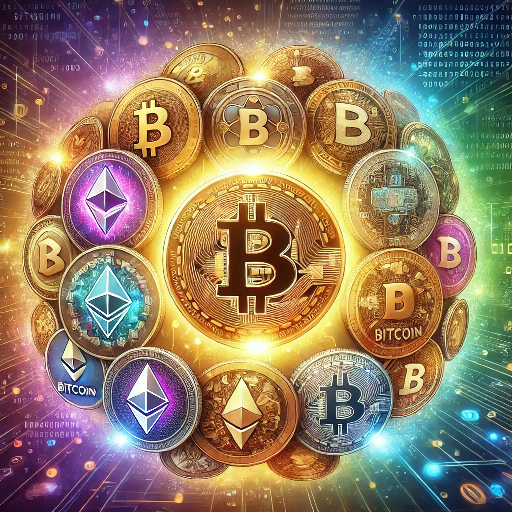In today’s rapidly evolving digital landscape, blockchain technology (or Multi Chain) continues to revolutionize various industries, offering decentralized and secure solutions for a myriad of applications. Among the latest advancements in the blockchain space is the concept of Multi-Chain technology, which aims to enhance scalability, interoperability, and efficiency across multiple blockchain networks. In this article, we delve into the intricacies of Multi-Chain technology and explore its potential impact on the future of decentralized ecosystems.
What is Multi Chain Technology?
Multi-Chain technology refers to the capability of running multiple independent blockchain networks in parallel, each with its own set of rules, consensus mechanisms, and functionalities. Unlike traditional single-chain architectures, Multi-Chain systems enable cross-chain communication and asset transfers, facilitating seamless interaction between disparate blockchain platforms.
Key Features and Benefits of Multi Chains
- Scalability: One of the primary challenges facing blockchain networks is scalability. By allowing multiple chains to operate concurrently, Multi-Chain technology can significantly improve transaction throughput and processing speed, thereby addressing scalability concerns without compromising on decentralization.
- Interoperability: Interoperability is crucial for fostering collaboration and synergy between different blockchain ecosystems. Multi-Chain platforms facilitate interoperability by enabling the seamless exchange of assets and data between distinct chains, fostering a more connected and cohesive decentralized environment.
- Customization: Multi-Chain technology provides developers with greater flexibility and customization options, allowing them to tailor blockchain solutions to meet specific use cases and requirements. This versatility enables the creation of specialized chains optimized for particular applications, such as finance, supply chain management, or decentralized finance (DeFi).
- Enhanced Security: By distributing transactions and data across multiple chains, Multi-Chain systems enhance security and resilience against potential attacks or network failures. This redundancy mitigates the risk of a single point of failure, bolstering the overall robustness of the decentralized ecosystem.
Use Cases and Applications
The versatility of Multi-Chain technology opens up a wide range of use cases and applications across various industries. Some notable examples include:
- Cross-Chain Asset Transfers: Multi-Chain platforms facilitate the seamless transfer of digital assets between different blockchain networks, enabling cross-chain interoperability and liquidity.
- Decentralized Finance (DeFi): Multi-Chain technology plays a crucial role in the development of decentralized finance applications, allowing for the creation of interoperable protocols, liquidity pools, and decentralized exchanges (DEXs).
- Supply Chain Management: Multi-Chain systems enhance transparency and traceability in supply chain management by enabling the secure tracking of goods and transactions across multiple blockchain networks.
- Gaming and Non-Fungible Tokens (NFTs): Multi-Chain technology enables the creation and exchange of non-fungible tokens (NFTs) across diverse gaming platforms and virtual environments, unlocking new possibilities for digital asset ownership and monetization.
The Future of Multi Chain Technology
As blockchain technology continues to evolve, Multi Chain systems are poised to play an increasingly significant role in shaping the future of decentralized ecosystems. With their ability to enhance scalability, interoperability, and security, Multi-Chain platforms offer a promising framework for building robust and versatile blockchain solutions that cater to a wide range of industries and applications.
In conclusion, Multi-Chain technology represents a paradigm shift in the blockchain space, offering a scalable, interoperable, and customizable framework for decentralized innovation. By leveraging the power of multiple blockchain networks in tandem, Multi-Chain platforms have the potential to drive widespread adoption and usher in a new era of decentralized collaboration and creativity.




















